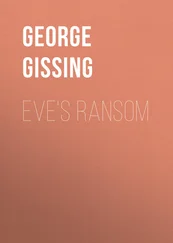George Gissing - Thyrza
Здесь есть возможность читать онлайн «George Gissing - Thyrza» — ознакомительный отрывок электронной книги совершенно бесплатно, а после прочтения отрывка купить полную версию. В некоторых случаях можно слушать аудио, скачать через торрент в формате fb2 и присутствует краткое содержание. Жанр: foreign_prose, literature_19, foreign_antique, на английском языке. Описание произведения, (предисловие) а так же отзывы посетителей доступны на портале библиотеки ЛибКат.
- Название:Thyrza
- Автор:
- Жанр:
- Год:неизвестен
- ISBN:нет данных
- Рейтинг книги:3 / 5. Голосов: 1
-
Избранное:Добавить в избранное
- Отзывы:
-
Ваша оценка:
- 60
- 1
- 2
- 3
- 4
- 5
Thyrza: краткое содержание, описание и аннотация
Предлагаем к чтению аннотацию, описание, краткое содержание или предисловие (зависит от того, что написал сам автор книги «Thyrza»). Если вы не нашли необходимую информацию о книге — напишите в комментариях, мы постараемся отыскать её.
Thyrza — читать онлайн ознакомительный отрывок
Ниже представлен текст книги, разбитый по страницам. Система сохранения места последней прочитанной страницы, позволяет с удобством читать онлайн бесплатно книгу «Thyrza», без необходимости каждый раз заново искать на чём Вы остановились. Поставьте закладку, и сможете в любой момент перейти на страницу, на которой закончили чтение.
Интервал:
Закладка:
Gilbert walked as far as the middle of the bridge, then leaned upon the parapet and looked northwards. The tide was running out; it swept darkly onwards to the span of Westminster Bridge, whose crescent of lights it repeated in long unsteady rays. Along the base of the Houses of Parliament the few sparse lamps contrasted with the line of brightness on the Embankment opposite. The Houses themselves rose grandly in obscure magnitude; the clock-tower beaconed with two red circles against the black sky, the greater tower stood night-clad, and between them were the dim pinnacles, multiplied in shadowy grace. Farther away Gilbert could just discern a low, grey shape, that resting-place of poets and of kings which to look upon filled his heart with worship.
In front of the Embankment, a few yards out into the stream, was moored a string of barges; between them and the shore the reflected lamp-light made one unbroken breadth of radiance, blackening the mid-current. From that the eye rose to St. Thomas's Hospital, spreading block after block, its windows telling of the manifold woe within. Nearer was the Archbishop's Palace, dark, lifeless; the roofs were defined against a sky made lurid by the streets of Lambeth. On the pier below signalled two crimson lights.
The church bells kept up their clangorous discord, softened at times by the wind. A steamboat came fretting up the stream; when it had passed under the bridge, its spreading track caught the reflected gleams and flung them away to die on unsearchable depths. Then issued from beneath a barge with set sail, making way with wind and tide; in silence it moved onwards, its sail dark and ghastly, till the further bridge swallowed it.
The bells ceased. Gilbert bent his head and listened to the rush of the water, voiceful, mysterious. Sometimes he had stood there and wished that the dread tide could whelm him. His mood was far other now; some power he did not understand had brought him here as to the place where he could best realise this great joy that had befallen him.
But the wind blew piercingly, and when at length he moved from the parapet, he found that his arms were quite numb; doubtless he had stood longer than he thought. Instead of returning by the direct way, he walked along the Embankment It was all but deserted; the tread of a policeman echoed from the distance. But in spite of the bitter sky, two people were sitting together on one of the benches—a young man and a work-girl; they were speaking scarcely above a whisper. Gilbert averted his face as he passed them, and for the moment his eyes had their pain-stricken look.
Issuing into Westminster Bridge Road, he found himself once more amid a throng. And before he had gone far he recognised a figure that walked just ahead of him. It was Ackroyd; he was accompanied by a girl of whom Gilbert had no knowledge—Miss Totty Nancarrow. They were talking in a merry, careless way: Ackroyd smoked a cigar, and Totty walked with her usual independence, with that swaying of the haunches and swing of the hands with palm turned outwards which is characteristic of the London work-girl. Her laugh now and then rose to a high note; her companion threw back his head and joined in the mirth. Clearly Ackroyd was in a way to recover his spirits.
At the junction of two ways they stopped. Gilbert stopped too, for he did not care to pass them and be recognised. He crossed the road, and from the other side watched them as they stood talking. Now they were taking leave of each other. Ackroyd appeared to hold the girl's hand longer than she liked; when she struggled to get away, he suddenly bent forward and snatched a kiss. With a gesture of indignation she escaped from him.
Gilbert had a desire to join Ackroyd, now that the latter was alone. But as he began to recross the street, the young man moved on and turned into a public-house. Gilbert again stopped, and, disregarding the crowds about him, lost himself in thought. He determined at length to go his way.
Mrs. Grail had supper ready, with some mince pies of her own making.
'Each lot I make,' she said, as they sat down, 'I say to myself they'll be the last.'
'No, no, mother; we shall eat a good many together yet,' Gilbert replied, cheerily. The wind had brought a touch of colour to his cheeks and made his eyes glisten.
'Have you taken any upstairs?' he asked presently.
'No, my dear. Do you think I may?'
'Oh, I should think so.'
The old lady looked at him and grew thoughtful.
There was no work to rise to on the morrow. With a clear conscience Gilbert could sit on into the still hours which were so precious to him. And again, before going to rest, he stepped quietly from the house to look at the upper windows.
CHAPTER X
TEMPTING FORTUNE
Thyrza continued to be far from well. The day-long darkness encouraged her natural tendency to sad dreaming. When alone, in Lydia's absence at the work-room, she sometimes had fits of weeping; it was a relief to shed tears. She could have given no explanation of the sufferings which found this outlet; her heart lay under a cold weight, that was all she knew.
Lydia pursued her course with the usual method and contentment, yet, in these days just before Christmas, with a perceptible falling off in the animation which was the note of her character. Perhaps she too was affected by the weather; perhaps she was anxious about Thyrza; one would have said, however, that she had some trouble distinct from these.
On Christmas Eve she ran round to Paradise Street, to make arrangements for the next day. Evidently it would not be wise for Thyrza to leave home; that being the ease, it was decided that Mr. Boddy should come and have tea with the girls in their own room. Lydia talked over these things with Mary in the kitchen below the shop, where odours of Christmas fare were already rife. The parlour was full of noisy people, amid whom Mr. Bower was holding weighty discourse; the friends had gone below for privacy.
'So I shall keep the coat till he comes, Lydia said. 'I know Thyrza would like to see his poor old face when he puts it on. And you might come round yourself, Mary, just for an hour.'
'I'll see if I can.'
'I suppose you'll have people at night?'
'I don't know, I'm sure. I'd much rather come and sit with you, but mother may want me.'
Lydia asked:
'Has Mr. Ackroyd been here lately?'
'I haven't seen him. I hope not.'
'Why do you say that, Mary?' asked Lydia impatiently.
'I only say what I think, dear.'
Lydia for once succeeded in choosing wiser silence. But that look which had no place upon her fair, open countenance came for a moment, a passing darkness which might be forecast of unhappy things.
At four o'clock on the following afternoon—this Christmas fell on a Friday—everything was ready in Walnut Tree Walk for Mr. Boddy's arrival. The overcoat, purchased by Lydia after a vast amount of comparing and selecting, of deciding and rejecting and redeciding, was carefully hidden, to be produced at a suitable moment. The bitter coldness of the day gladdened the girls now that they knew the old man would go away well wrapped up. This coat had furnished a subject for many an hour of talk between them, and now as they waited they amused themselves with anticipation of what Mr. Boddy would say, what he would think, how joyfully he would throw aside that one overcoat he did possess—a garment really too far gone, and with no pretence of warmth in it. Thyrza introduced a note of sadness by asking:
'What 'll happen, Lyddy, if he gets that he can't earn any thing?'
'I sometimes think of that,' Lydia replied gravely. 'We couldn't expect the Bowers to keep him there if he couldn't pay his rent. But I always hope that we shall be able to find what he needs. It isn't much, poor grandad! And you see we can always manage to save something, Thyrza.'
Читать дальшеИнтервал:
Закладка:
Похожие книги на «Thyrza»
Представляем Вашему вниманию похожие книги на «Thyrza» списком для выбора. Мы отобрали схожую по названию и смыслу литературу в надежде предоставить читателям больше вариантов отыскать новые, интересные, ещё непрочитанные произведения.
Обсуждение, отзывы о книге «Thyrza» и просто собственные мнения читателей. Оставьте ваши комментарии, напишите, что Вы думаете о произведении, его смысле или главных героях. Укажите что конкретно понравилось, а что нет, и почему Вы так считаете.












